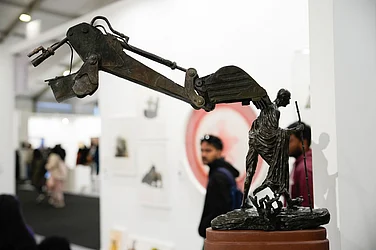After over two months, India's Covid positivity rate went past 1% again as the country witnessed a single-day rise of 3,157 infections and 26 fatalities, according to the Union Health Ministry data updated on Monday.
The data reported that the rise pushed the overall Covid tally of the country to 4,30,82,345 cases and 5,23,869 deaths. The number of active cases rose by 408 in a 24-hour span to reach 19,500, the data updated at 8 am showed. At 1.07 per cent, the daily positivity went past one per cent again after a little over two months, the ministry said. It was at 1.11 per cent on February 27.
The weekly rate was 0.70 per cent, according to the health ministry. The death toll has climbed to 5,23,869 with the 26 new fatalities being reported. The active cases constitutes 0.05 per cent of the total infections, while the country’s Covid-19 recovery rate was recorded at 98.74 per cent, the health ministry said.
What is R-value?
The R-value also known as the R-factor, is a mathematical term. It indicates the virus’ rate of reproduction. R-value is used to track the Covid-19 virus and understand its spread across the area. ‘R’ here stands for the number of people one person can infect.
For example If the R-value is 1, that means every infected person is likely to infect another person. When the R-value goes up, that means the number of people, who are likely to be infected, increase. When the R-value is below 1, then there are chances that the outbreak will stop as there are not too many people who are likely to be infected.
R-Value increased to over one, What Sitabhra Sinha (Mathematician and Researcher) has to say:
India's R-value has been steadily increasing over the last few weeks, The last time the R was above 1 was in February, when the value was 1.11. "This increase in R-value is not just because of Delhi but also Haryana and Uttar Pradesh," Sitabhra sinha, The mathematician,who has been tracking R for India since the beginning of the of the pandemic, told PTI.
“The total cases in India are indeed increasing exponentially. Of course, this being a very large country, this national rise is primarily being driven by a few regions - one cluster in the north (Delhi, Haryana, UP) and the other in the south (Karnataka),” he said.
“At the height of the Omicron wave R had risen to its maximum value so far (for India) of 2.98 (December 30, 2021-Jan 10, 2022). Contrast this with the next highest value of R during the beginning of the first wave, 2.51 (March 14-April 5, 2020),” he further added.
R-Value in other cities:
The estimated R-value in the week ending April 18 is 2.12 for Delhi, 2.12, 1.04 for Karnataka, 1.70 for Haryana, 1.13 for Mumbai, 1.18 for Chennai and 1.04 for Bengaluru. Among the major states, Uttar Pradesh has an R-value above 2, Kerala and Maharashtra have an R-value less than 1, with values of 0.72 and 0.88 respectively. Karnataka also has R over 1 currently, possibly because of the rising cases in Bengaluru. according to the reports.
"It is interesting that the major cities of Mumbai, Chennai and Bengaluru also have R above 1, suggesting that urban areas may be showing an increasing number of cases even though at the level of the entire state such an increase may not yet be apparent,” experts say.
What experts have to say on 4th Wave:
There have been indicators that India needs to watch out for, experts say that it is unlikely that the present scenario will result in a wave as deadly as the one caused by the Delta variant of Covid-19 during the months from April to June in 2021, They also state that the recent rise in cases is because of factors comprising of dwindling vaccine immunity and the lifting of the Covid curbs in most parts of the country, according to the reports.
However, The experts say that most Indians have acquired protective immunity to the virus by contracting the infection or by getting the vaccine. Also, a majority of Indians are vaccinated. "India is breathing easy," says Dr K Srinath Reddy, president of the Public Health Foundation of India, a Delhi-based think tank.
"We are in a good place. We have a high level of vaccination and the government should be commended for that. We also have a high level of infection in the population which we acquired during several waves," says Dr Gagandeep Kang, one of India's top virologist. "The possibility of a large-scale nationwide wave of infections in India in the near future is very low," says Dr Chandrakant Lahariya, a physician epidemiologist, reproted by BBC News.
(With inputs from PTI)


























